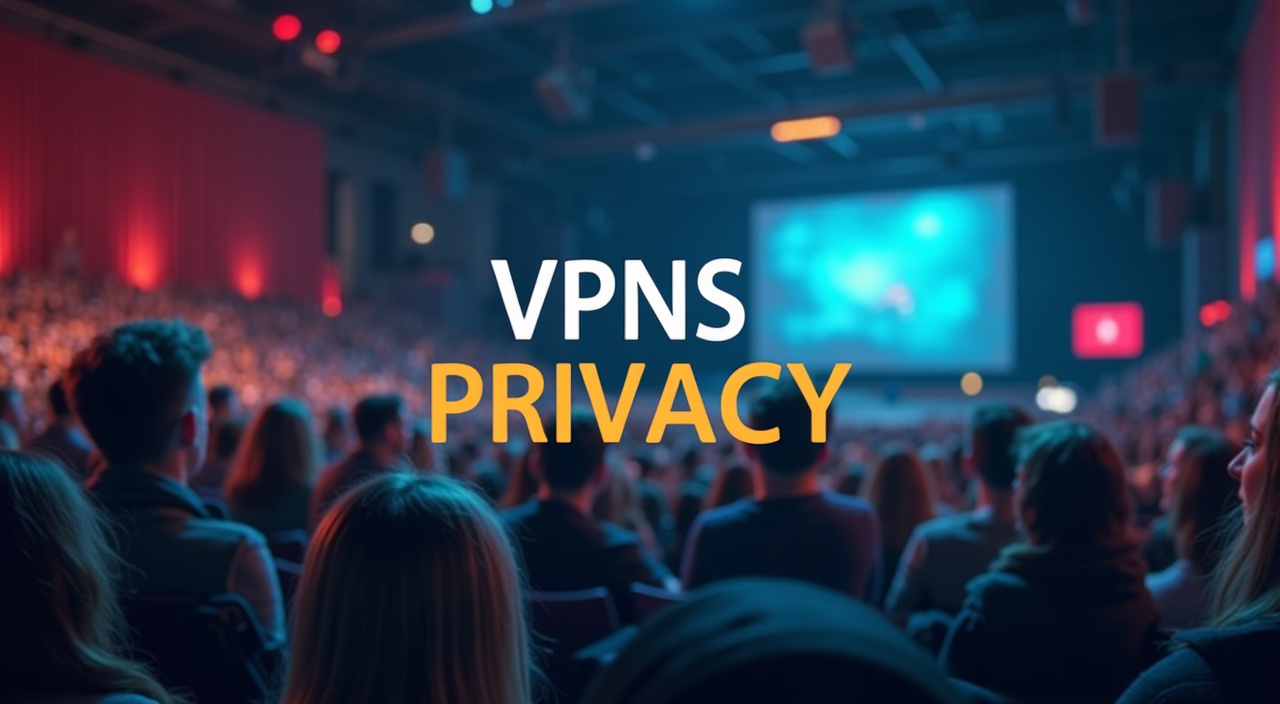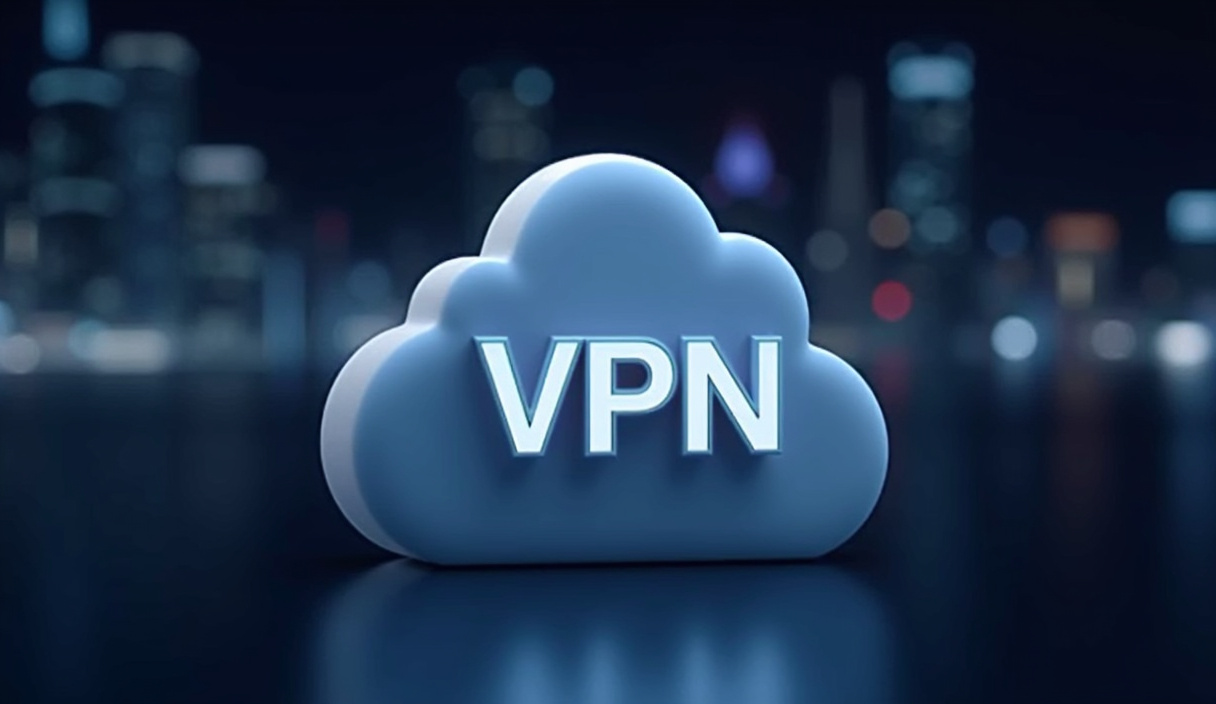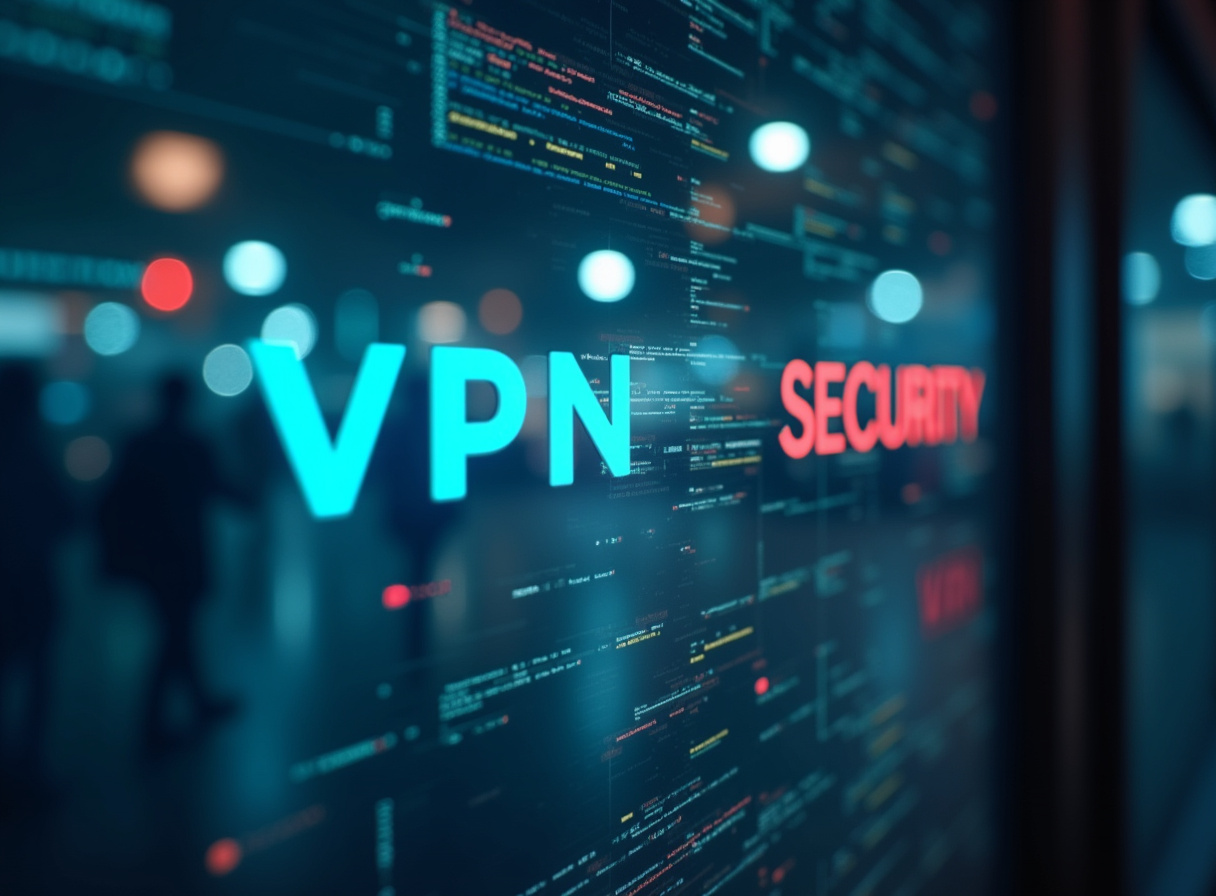VPNs for Film Distributors: Securing Digital Deliveries

Enhancing Content Security and Ensuring Safe Distribution of Film Content
In the high-stakes realm of film distribution, safeguarding digital assets is paramount. This article explores how Virtual Private Networks (VPNs) are essential for film distributors. It focuses on enhancing content security, digital file protection, and ensuring safe distribution of valuable film content in an era defined by increasing digital threats.
As the film industry increasingly relies on digital deliveries for speed and efficiency, the vulnerability of sensitive content to cyberattacks becomes a critical concern. Film distributors must establish robust cybersecurity strategies to protect their intellectual property, maintain their reputation, and ensure continued business success. VPNs are a key component of these strategies, offering secure channels for content distribution and mitigating the ever-present threat of unauthorized access and piracy.
The shift from physical media to digital formats has revolutionized distribution, but it has also opened new avenues for malicious actors. Digital piracy, in particular, poses a significant risk to film distributors, potentially leading to substantial financial losses and erosion of copyright protection. Leaked films, pre-release copies, and unauthorized distribution can severely impact a film's box office performance and overall revenue.
To counter these threats, film distributors need to implement multiple layers of security, with VPNs serving as a crucial first line of defense. A VPN creates an encrypted connection between a film distributor's server and the recipient's device, ensuring that all data transmitted is protected from interception. This encryption is vital for preventing unauthorized access to valuable film content during transit.
Beyond basic encryption, VPNs offer sophisticated identity verification, data integrity checks, and access control mechanisms that fortify the entire distribution process. The implementation of a film distributor VPN is not merely a technical upgrade; it's a strategic investment in safeguarding the future of film distribution. By adopting a robust VPN infrastructure, film distributors can create a secure ecosystem within which their content can be delivered with confidence.
Security is not the only advantage. VPNs equip distributors with tools to manage geographic restrictions on film content. These restrictions are commonly enforced to adhere to copyright laws, licensing agreements, and distribution rights that differ across countries, allowing targeted distribution.
Digital distribution, while offering massive advantages, must also respect these restrictions to avoid legal problems. A reliable VPN overcomes these by enabling film distributors to manipulate digital traffic sources by connecting through various global servers as needed. Furthermore, a well-chosen VPN can enhance the efficiency of digital deliveries.
Enhanced bandwidth, optimized routing, and the security provided by encryption help ensure faster and clearer transport times, reducing the load on servers. By using tailored solutions for media distribution, providers enable capabilities such as adaptive streaming and fast file transfers, which are essential for managing large film files. This leads to greater operational effectiveness.
The core functionality of a VPN lies in creating a secure, encrypted tunnel between a user's device and a remote server. This tunnel effectively shields data transmitted over public networks, such as the internet, rendering it unreadable to unauthorized parties. When a film distributor initiates a digital delivery through a VPN, all data exchanged between their servers and the recipient’s device is encrypted using advanced cryptographic algorithms.
This includes not only the film content itself, but also metadata, user credentials, and any other sensitive information. Encryption scrambles the data into an unreadable format, preventing hackers, eavesdroppers, and malicious entities from intercepting and deciphering it. The encryption process typically involves protocols such as IPsec, L2TP/IPsec, or OpenVPN, each offering varying levels of security and performance.
IPsec, for instance, is renowned for its robust security and interoperability, while OpenVPN is favored for its flexibility and open-source nature. Film distributors need to carefully evaluate these protocols and select the one that best aligns with their specific security requirements and infrastructure capabilities. In addition to encryption, a VPN masks the user's IP address by routing their internet traffic through a remote server.
IP addresses serve as unique identifiers that can be used to track a device’s location and online activity. By concealing the real IP address and replacing it with that of the VPN server, a VPN effectively anonymizes the user’s internet connection, making it considerably more difficult for hackers to trace the origin of data transmissions. This measure is of particular importance when distributing film content to international partners or regions with less secure internet infrastructure.
The masking of IP addresses enhances privacy and anonymity, shielding film distributors from potential surveillance or targeting by malicious actors. Furthermore, it strengthens the security posture of the entire digital delivery process by making it more challenging for attackers to identify the source and destination of data transmissions. The ability to circumvent geographical restrictions is another significant advantage of VPNs for film distributors.
Many countries have laws and regulations that restrict access to certain types of content. With a VPN, film distributors can bypass these restrictions by connecting to a server located in a country where the content is not blocked. This allows them to deliver films to partners and audiences worldwide without facing legal or technical barriers.
Moreover, VPNs can also be utilized to access regional content libraries and streaming platforms, providing distributors with invaluable market intelligence and competitive insights. This ability to navigate geographical restrictions is particularly useful for film distributors seeking to expand their global reach and tap into new markets. By strategically utilizing VPN servers in different locations, they can overcome censorship, bypass content filters, and ensure that their films are accessible to the widest possible audience.
The benefits of VPNs extend beyond mere data encryption and IP address masking. They also include enhanced network security, prevention from DDoS attacks, and secure remote access for employees. DDoS attacks, for example, can disrupt digital deliveries by overwhelming a film distributor's servers with malicious traffic.
A VPN can mitigate this risk by diverting traffic through its own servers, acting as a shield against these attacks. Secure remote access for employees is particularly relevant in today's work environment. With many film distributors relying on remote teams and freelancers, a VPN enables employees to securely access sensitive film content and collaborate on projects from anywhere.
This ensures that data remains protected even when employees are working outside of the traditional office environment.
Choosing the right film distributor VPN is crucial for optimizing content security and ensuring safe distribution of sensitive film assets. Several considerations need to be taken into account: the security protocols supported, the speed and reliability of the service, the number of server locations available, and the provider's privacy policy. A strong film distributor VPN should support advanced encryption standards (AES) with key lengths of 256-bit or higher, ensuring that the data remains indecipherable to potential attackers.
It should also offer multiple VPN protocols, such as IPsec, OpenVPN, and IKEv2, allowing film distributors to choose the protocol that best suits their specific security needs and network environment. The flexibility to switch between protocols can be particularly useful in accommodating different network configurations and device types. For example, OpenVPN is often preferred for its robustness and compatibility with various operating systems, while IKEv2 is known for its speed and stability on mobile devices.
Speed and reliability are paramount when transferring large film files. A high-quality VPN should provide fast connection speeds and stable performance to minimize transfer times and prevent interruptions. The VPN provider should maintain a global network of servers, enabling film distributors to connect to the server location closest to their recipients.
This ensures optimal connectivity and reduces latency. The geographic distribution of servers is a critical factor, as it directly impacts the speed and reliability of data transfers. A VPN provider with servers in multiple regions can ensure that film distributors always have a nearby server to connect to, regardless of their recipients' location.
This minimizes network latency and improves the overall distribution experience. Privacy is another critical factor to consider. Film distributors should select film distributor VPN providers with a strict no-logs policy, meaning that they do not collect or store any data about their users’ activities.
This protects the film distributors’ privacy and ensures that their data cannot be compromised in the event of a data breach or legal subpoena. A transparent and verifiable no-logs policy is essential for establishing trust with a VPN provider. Film distributors should carefully review the provider's privacy policy and seek independent audits or certifications to confirm that the policy is being adhered to.
In addition to these technical considerations, film distributors should also evaluate a VPN provider’s customer support and user-friendliness. A responsive and knowledgeable support team can provide rapid assistance with any technical issues, while an intuitive user interface makes it easy to set up and manage the VPN. The availability of 24/7 customer support is particularly valuable, as it ensures that film distributors can always get help when they need it, regardless of their location or time zone.
Furthermore, a user-friendly interface simplifies the process of connecting to a VPN server, configuring security settings, and managing user accounts. When implementing a VPN solution, film distributors should also establish clear security policies and procedures for employees and partners. These policies should outline the proper use of the VPN, define access controls, and provide guidelines for reporting security incidents.
Employee training is also essential for ensuring that everyone understands the importance of VPN security and knows how to use the VPN effectively.
Beyond the technical aspects of VPN implementation, film distributors must proactively integrate VPN usage into their overall content security strategy. This involves developing comprehensive security policies, conducting regular audits, and fostering a culture of security awareness among employees and partners. A well-defined security policy should clearly articulate the acceptable use of VPNs, outlining which employees and partners are authorized to use the VPN, the types of data that should be protected with a VPN, and the security protocols that must be followed.
The policy should also address issues such as password management, device security, and reporting of security incidents. Regular security audits are essential for ensuring that the VPN is functioning effectively and that the security policies are being followed. These audits should include a review of the VPN's configuration, logs, and access controls, as well as penetration testing to identify any vulnerabilities.
The results of the audits should be used to improve the VPN's security and update the security policies as needed. Fostering a culture of security awareness is crucial for ensuring that employees and partners understand the importance of content security and are committed to following security policies. This can be achieved through regular training sessions, security newsletters, and phishing simulations.
The training should cover topics such as VPN usage, password security, data protection, and the identification of phishing emails. Beyond internal policies, film distributors should also consider the security practices of their external partners, such as streaming platforms, post-production houses, and marketing agencies. These partners should be vetted to ensure that they have adequate security measures in place to protect film content.
Contractual agreements should include security provisions that require partners to comply with specific security standards and undergo regular security audits. Integrating film distributor VPN usage with other security technologies, such as firewalls, intrusion detection systems, and data loss prevention (DLP) solutions, can further enhance content security. Firewalls can be used to control network traffic and prevent unauthorized access to film content.
Intrusion detection systems can monitor network traffic for suspicious activity and alert security personnel to potential attacks. DLP solutions can prevent sensitive film content from being accidentally or intentionally leaked outside of the organization. Monitoring network traffic for anomalies and suspicious behavior is essential for detecting and responding to security incidents.
This can be achieved through security information and event management (SIEM) systems, which collect and analyze security logs from various sources to identify potential threats. SIEM systems can also be used to automate incident response, such as blocking malicious IP addresses and isolating compromised devices. Staying up-to-date with the latest security threats and vulnerabilities is crucial for maintaining effective content security.
This involves subscribing to security alerts, monitoring industry news, and attending security conferences. Film distributors should also participate in information sharing initiatives to exchange threat intelligence with other organizations in the film industry.
In conclusion, VPNs are indispensable for film distributors seeking to secure their digital deliveries and protect valuable film content. By creating encrypted tunnels, masking IP addresses, and circumventing geographical restrictions, VPNs provide essential layers of security that mitigate the risks associated with digital distribution. The choice of a suitable film distributor VPN should be determined by carefully analyzing factors such as supported encryption standards, connection speeds, server variety, and the provider's explicit privacy policies.
In the face of ever evolving cyber risks, robust measures like VPN usage act as a foundation for comprehensive security ecosystems that protect distributor data. However, using a VPN is not a solo solution, it is one component within a holistic strategy. The effective implementation of VPNs requires several other essential security considerations that work to enhance overall protection.
Creating strong and specific security policies, performing frequent checks of data and infrastructure, and providing necessary awareness training to individuals who interact directly with distribution data are among these key elements. These actions should be paired with supplementary infrastructure that enhances the VPN's security features; examples include highly configured firewalls, intrusion detection systems, and strict data loss prevention software. Maintaining a proactive strategy entails actively tracking developing security threats and fixing network vulnerabilities through frequent software updates, system adjustments, and the most up-to-date encryption norms.
The potential costs of ignoring vital security protocols are enormous. Risks include massive economic losses due to piracy, reputational harm from data breaches, and high legal fees. The initial investment in high-quality VPNs and sound security policies represents a very small part of avoiding possible catastrophic outcomes.
By adopting strict security measures, film distributors show a commitment to protecting their own content. They also build a solid trust relationship with their stakeholders, including filmmakers, investors, distributors, and customers. Trusted distribution methods help film distributors gain competitive advantages, thus attracting major projects knowing their creative works will be securely distributed.
The incorporation of VPNs into daily operational procedures should not be considered just a reactive step toward present threats, but as an active investment towards a secure and successful future in digital film distribution. By maintaining vigilant security procedures, supporting continuous improvements, and encouraging full awareness throughout their companies, film distributors may navigate the digital sphere. This way the distributors protect their assets, ensure their place in the sector, and promote trust from all who are invested.
As film distribution continues to change in the face of technical developments, the ongoing dedication to security procedures guarantees that distributors remain robust, versatile, prepared well, and safe.
Stay Updated
Get the latest VPN news, tips, and exclusive deals to your inbox.




